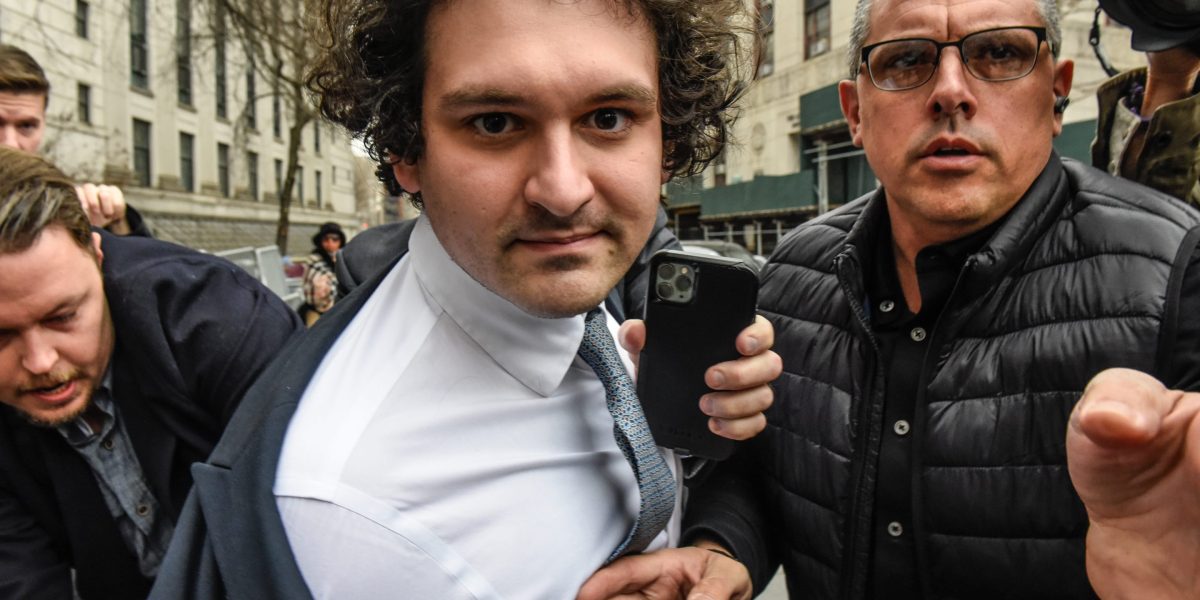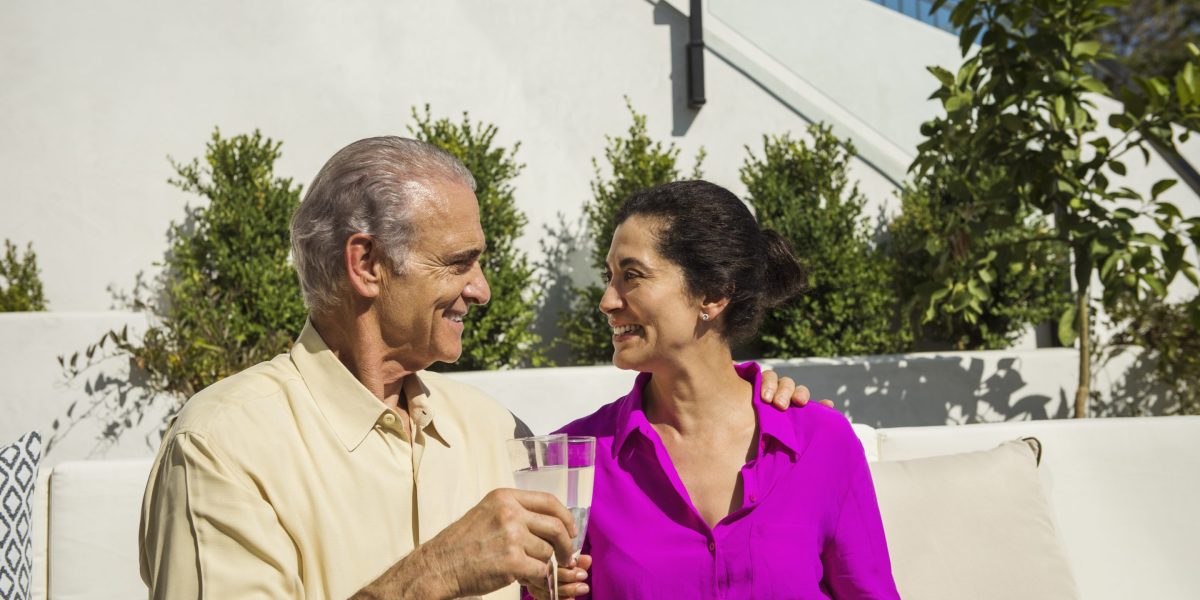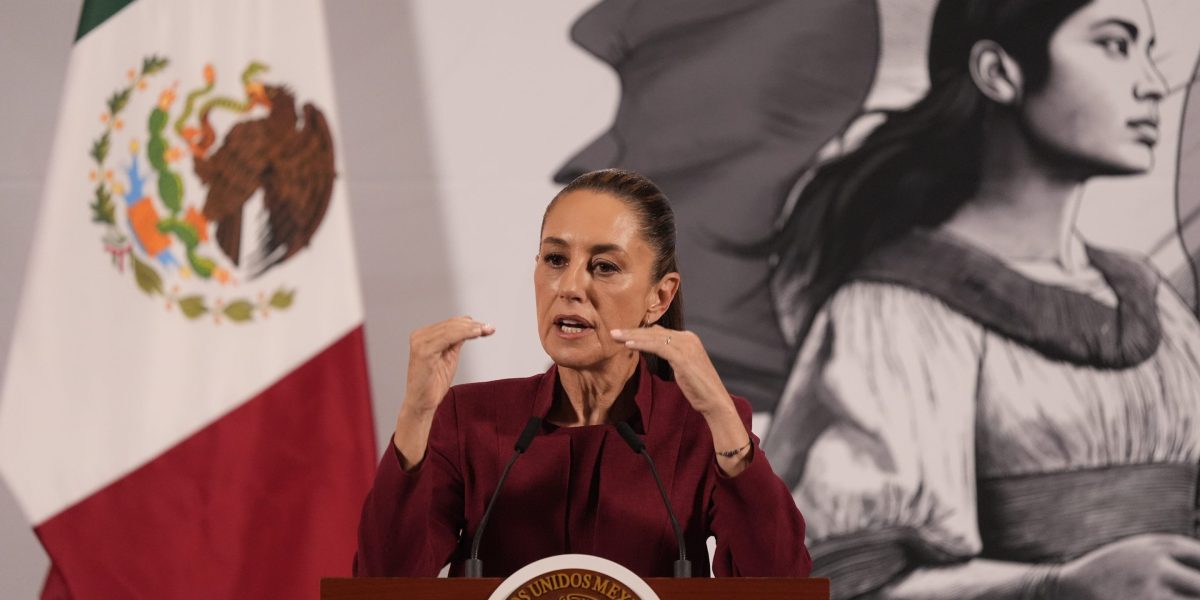Mexico celebrated Thursday having dodged the latest round of tariffs from the White House taking aim at dozens of U.S. trading partners around the world, but was also quickly reminded that in a global economy the effects of uncertainty can’t be entirely avoided.
President Claudia Sheinbaum said the free-trade agreement signed by Mexico, Canada and the U.S. during Trump’s first administration had shielded Mexico.
Now her government will focus on the existing 25% U.S. tariffs on imported autos, steel and aluminum, while accelerating domestic production to safeguard jobs and reduce imports.
“During my last call with President Trump, I said that, in the case of reciprocal tariffs, my understanding was that there wouldn’t be tariffs (on Mexico), because Mexico doesn’t place tariffs on the United States,” Sheinbaum said.
Economy Secretary Marcelo Ebrard noted that despite having free-trade agreements with the U.S., many countries were targeted by the tariffs U.S. President Donald Trump announced Wednesday on what he dubbed “Liberation Day.” Trump framed the tariffs as a way to bring manufacturing jobs back to the U.S.
Noting that Mexico dodged the latest round of tariffs, Ebrard said swaths of Mexican exports including agricultural products like avocados, clothing and electronics will continue to enter the U.S. without import duties.
Sheinbaum, meanwhile, encouraged companies producing in Mexico who had not been exporting under the free-trade agreement for various reasons to take the necessary steps to qualify. She cited major German auto producers as an example.
Qualifying for the free-trade agreement could involve anything from doing paperwork to making adjustments to the sourcing of a product.
Despite Trump’s latest tariffs not being imposed on Mexico, the uncertainty they created and the interconnectedness of the North American auto supply chains meant it didn’t take long for the effects to touch Mexico.
Stellantis, maker of auto brands including Dodge and Jeep, announced that it would pause production at its assembly plant in Toluca west of Mexico City for the month of April while it assesses the tariffs’ impact on its operations. A similar temporary production halt was scheduled for an assembly plant in Canada and some 900 workers were to be temporarily laid off across several plants in the United States.
That uncertainty is part of the reasons why Sheinbaum is pushing Plan Mexico, an initiative to promote and cultivate more domestic production.
As an example, she cited a collaboration between her government, local universities and Mexican companies Megaflux and Dina to produce electric buses for public transportation.
Ebrard said recently that the buses represent not only a technological advance in Mexico, but also a “strategic decision” in favor of Mexico’s industrial sovereignty.
At a factory in Mexico City, the electric buses called Taruk — trail-runner in the Indigenous Yaqui language – are already in production. Megaflux Director General Roberto Gottfried said the company hopes to deliver some 200 by year’s end.
He noted that some 70% of the Taruk’s components are produced in Mexico, including its motor, but the lithium batteries that power them come from China.
In a country where one out of every three people use public transportation every day, developing this sector domestically is critical, Gottfried said.
Despite the global economic challenges presented by the uncertainty caused by tariffs, he said, Mexico’s large internal market gives the initiative a competitive advantage to develop and weather the storm.
This story was originally featured on Fortune.com
Source link

 Entertainment8 years ago
Entertainment8 years ago
 Politics8 years ago
Politics8 years ago
 Entertainment8 years ago
Entertainment8 years ago
 Entertainment8 years ago
Entertainment8 years ago
 Tech8 years ago
Tech8 years ago
 Tech8 years ago
Tech8 years ago
 Tech8 years ago
Tech8 years ago
 Politics8 years ago
Politics8 years ago







